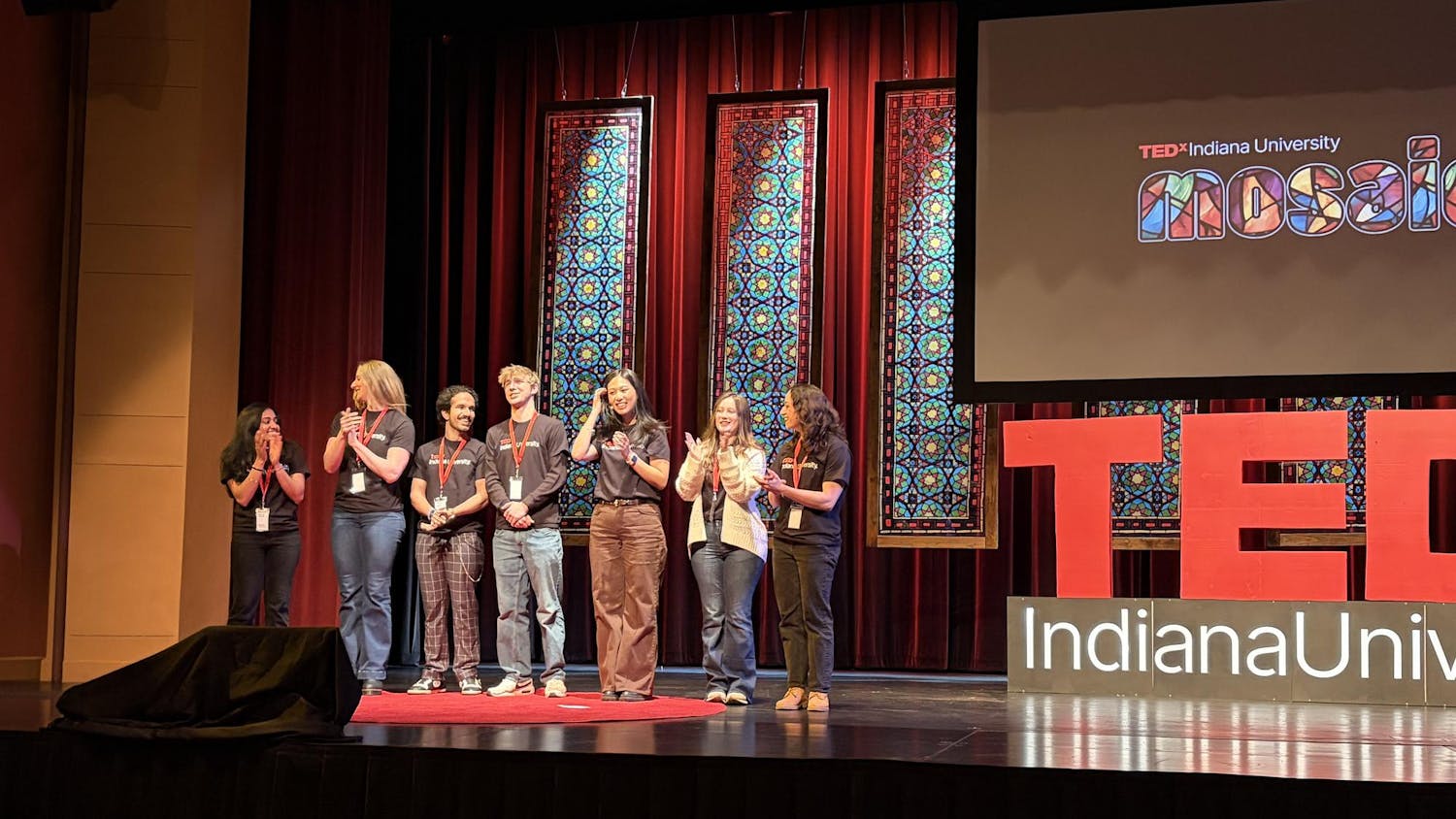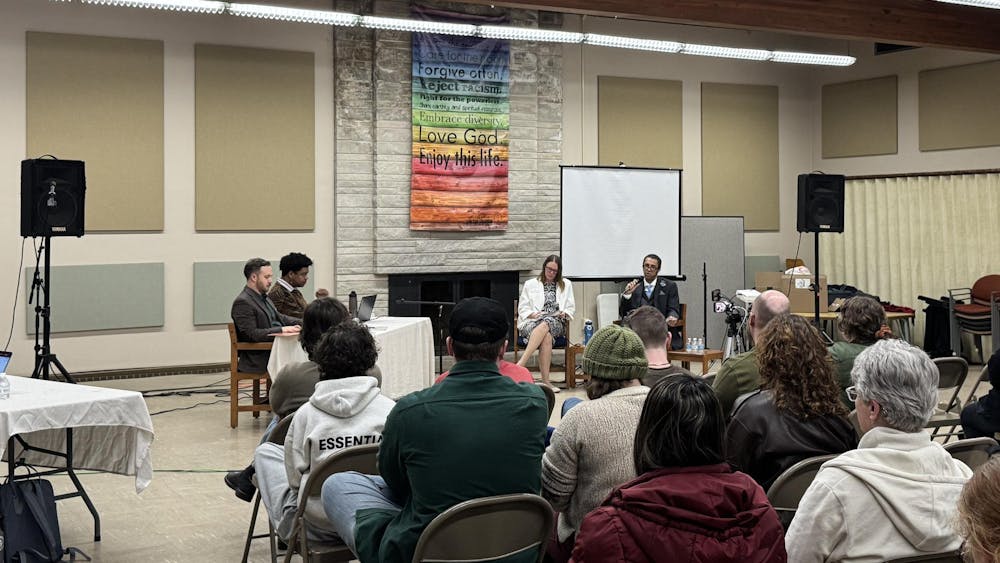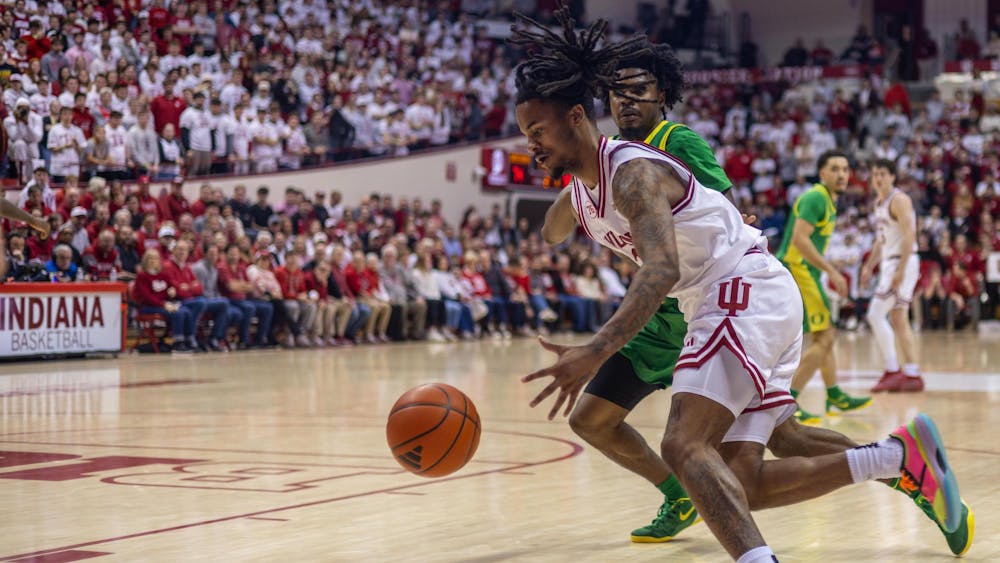Interested in writing a letter to the editor or guest column to the Indiana Daily Student? Check out our guidelines and submission details here.
It was one year ago that the Indiana Graduate Workers Coalition-United Electrical Workers launched its strike pledge, eventually signed by over 1,200 Indiana graduate workers. The strike in April of last year secured significant gains in wages and benefits for graduate employees at IU, making IU more competitive and lifting hundreds of graduate workers out of poverty. Now, we are seeing the IU administration attempt to undermine those gains by pushing for a regime of austerity, one that will irreparably damage IU’s reputation as an institution of higher learning.
The wins from the strike were massive. For instance, for a graduate student in the Media School in the fall of 2019, effective pay was $13,500 for a 10-month appointment. Today, with the elimination of fees and a dramatic increase in the minimum stipend, pay has increased by over 60% to $22,000. While the IU administration’s official line is that this resulted from their renewed commitment to graduate education, everyone knows the truth: This was the result of years of organizing, culminating in a historic 1,200+ grad worker strike.
Yet, the biggest victory of the strike was that graduate employees demonstrated enormous courage by standing up to the IU administration’s constant threats. Our working conditions are our students’ learning conditions, and IU’s classrooms, research labs and studios are better off because grad workers took a stand.
The IU administration seems dead set against anything that looks like an improvement to the conditions of teaching and learning at this institution. By imposing tight budgets on departments, IU is coercing department administrators to reduce wages and benefits for graduate employees. For example, graduate workers across multiple schools and departments, like the History department, the Media School, and the School of Education were recently informed that there would be reductions in the number of Student Academic Appointee (SAA) positions. To their credit, the History department has indicated that no current students will be affected, although the fate of future cohorts is unclear.
Forcing departments to reduce SAA lines damages both graduate and undergraduate education. SAA positions are the primary way that graduate workers are funded, and most graduate workers serve these positions through instructional roles – as teaching assistants, leading sections, or serving as instructors of record for their own lectures. The reduction of SAA positions will likely lead to larger class sizes, degrading the educational experience for undergrads.
It’s disappointing to see Department Chairs and Directors of Graduate Study with tenure protection accede so readily to these draconian measures while upper administrative salaries are skyrocketing. In 2022, President Pamela Whitten and Provost Rahul Shrivastav collected over $1.2 million in combined compensation.
Unified action may be needed sooner rather than later if we want to protect graduate education at IU. We want to reiterate the IGWC-UE principles behind creating mass actions, used during our four years of existence to organize marches, sit-ins, pickets and strikes.
- We asked for reasonable and possible demands that all grad workers support (like a cost of living raise or ending the fees).
- We talked to everyone to build support and trust, and created mass participation through public petitions.
- We didn't act until the vast majority were ready to act. During the strike, that meant signing a pledge that we would all go on strike together.
The majority of graduate employees in the Media School have now signed a petition that calls on the Media School administration to:
- Open a dialogue with Media School graduate students about any proposed changes to stipend levels or SAA lines;
- Commit to uphold the standard for all graduate students employed by the Media School of $22,000 minimum stipend, health care coverage, full tuition remission and no fees which was set last August 2022 and September 2022 by President Whitten, Provost Shrivastav and IU’s Taskforce on the Future of Graduate Education, and;
- Ensure that Media School graduate students are funded to the completion of their degrees.
We encourage other departments to follow their lead. The strength of our movement is in our courage to stand up to the administration publicly and in massive numbers. It may feel uncomfortable to ask your colleagues to take those risks with you, but we have found that graduate employees are generally ready to act to improve higher education. We have to stand together because the future of graduate studies at IU is at stake.
We’ve already proven that grad workers, united with faculty and staff, can stand up to the IU administration. Using the above principles of mass, collective action is how we can continue to fight back.
You can start by signing the IGWC-UE’s petition for a cost-of-living-adjustment here: tinyurl.com/igwccola
Anne Kavalerchik is a Ph.D. candidate in sociology and informatics, and Sam Smucker is a Ph.D. candidate in media studies.






